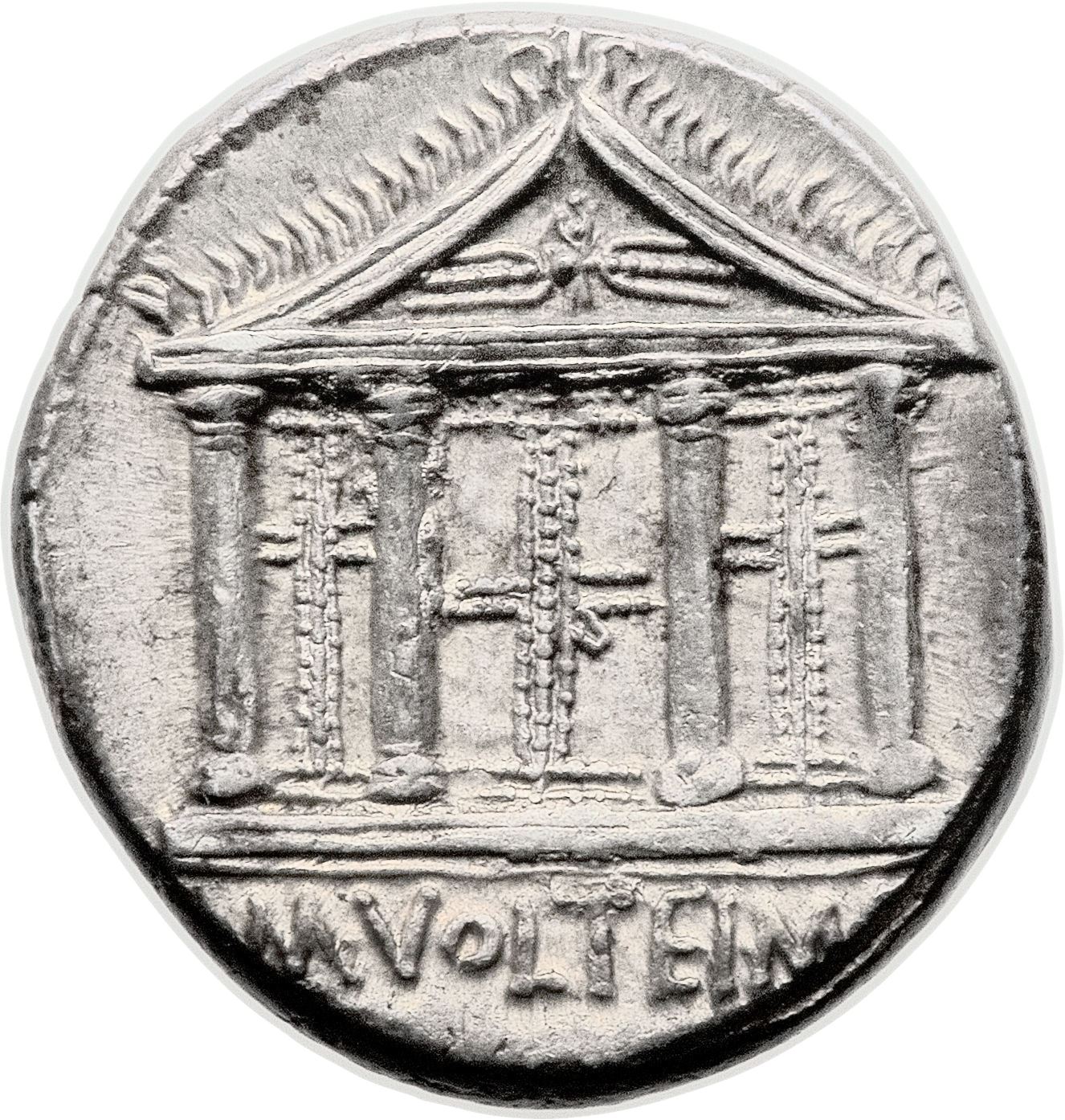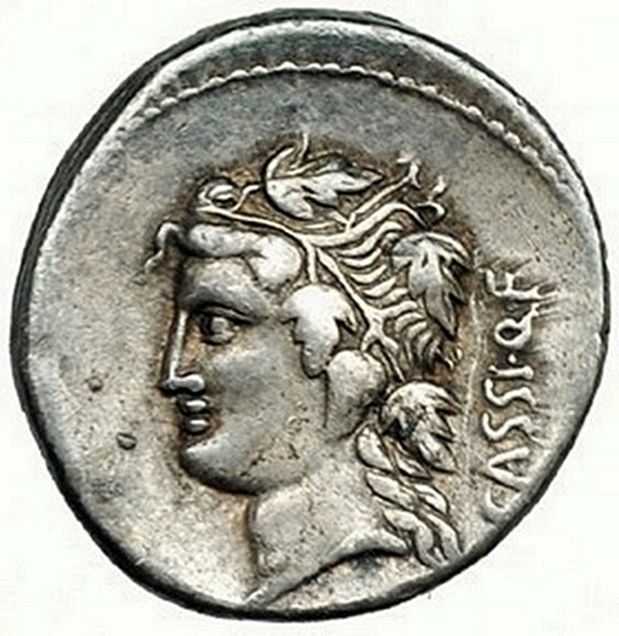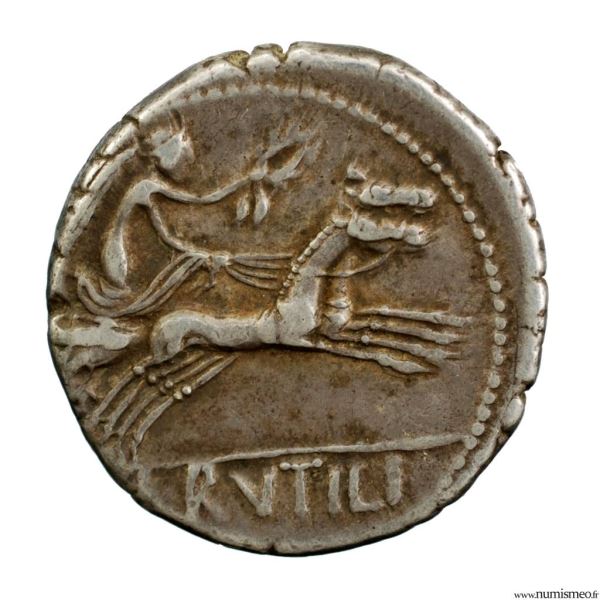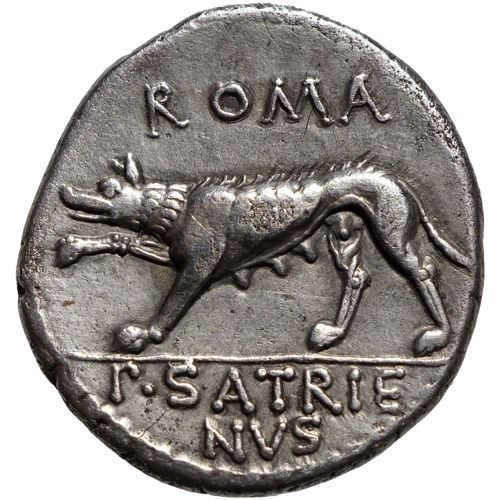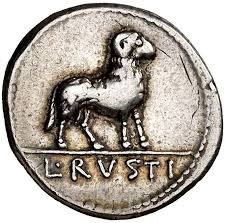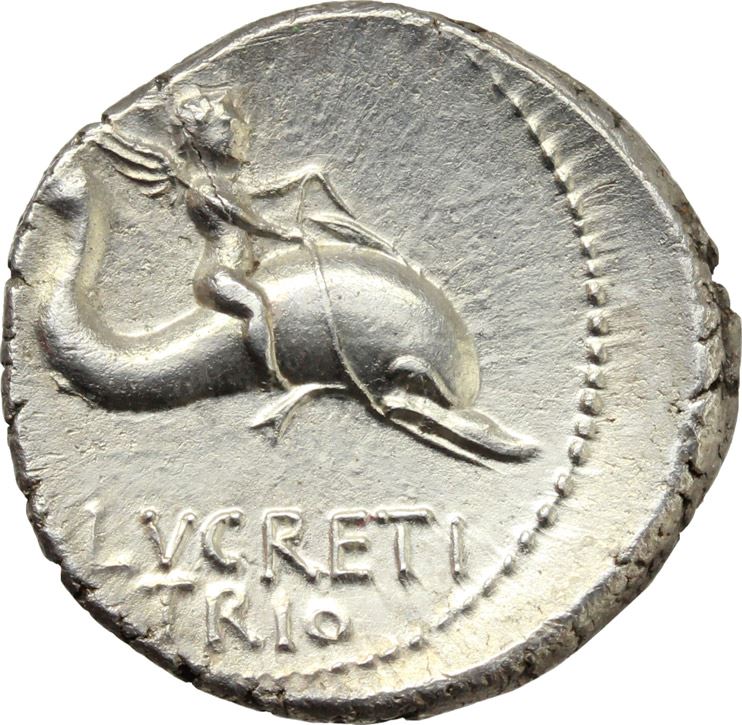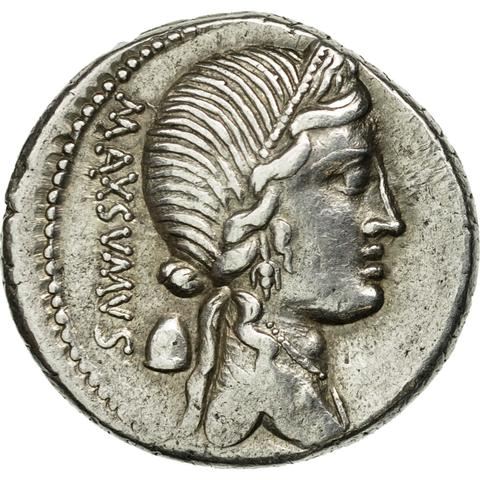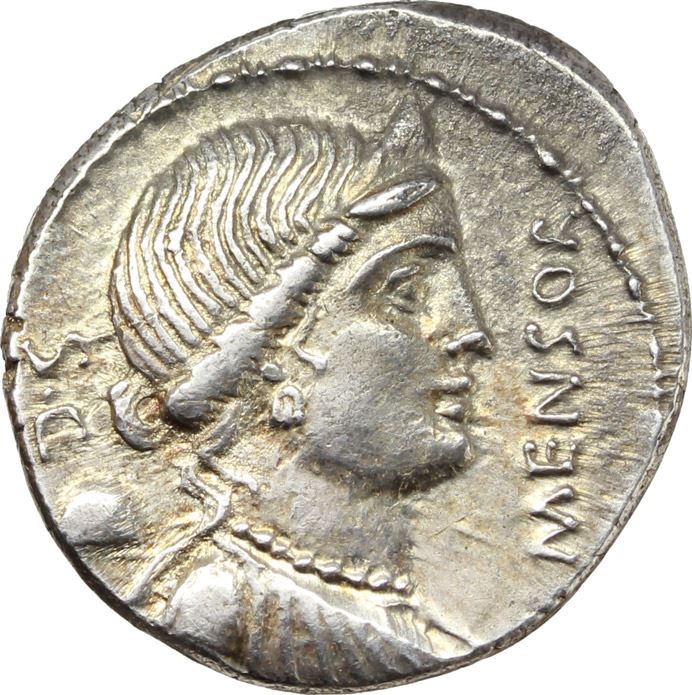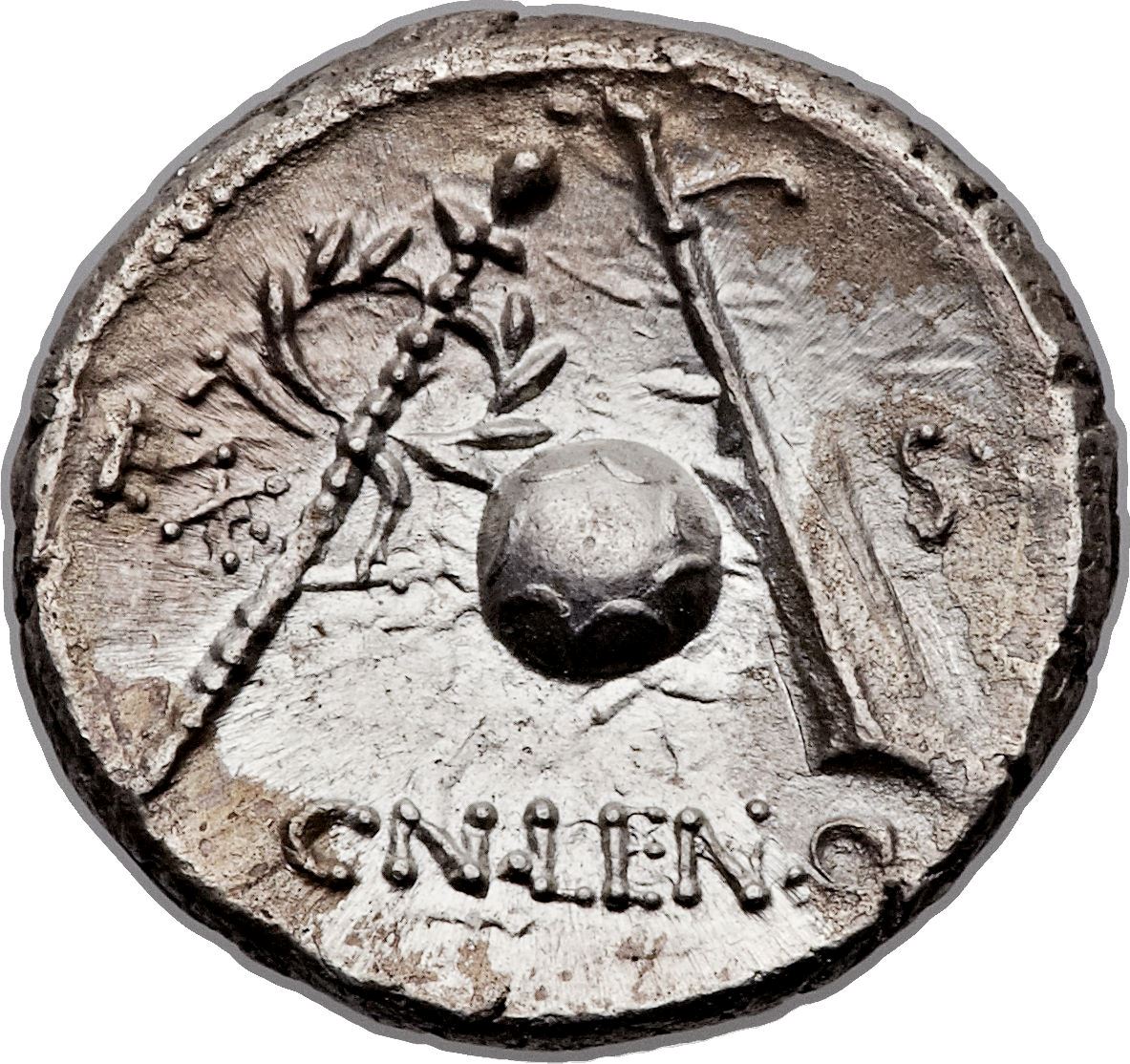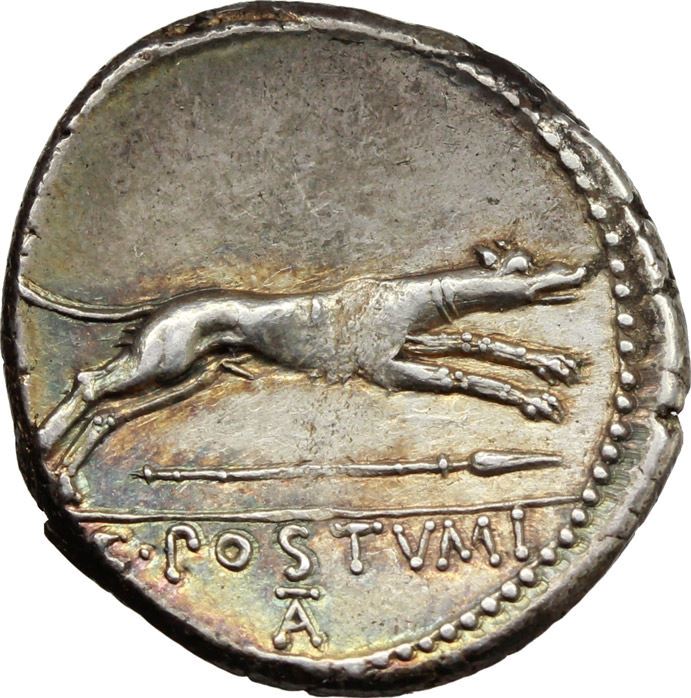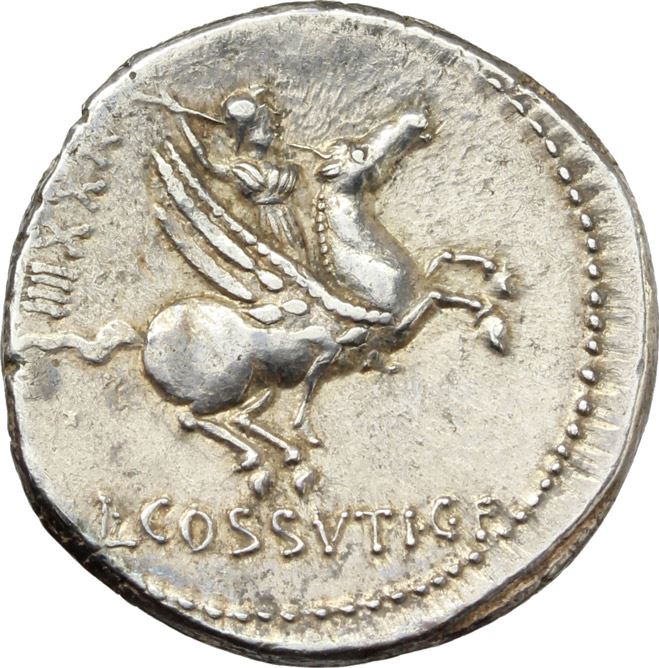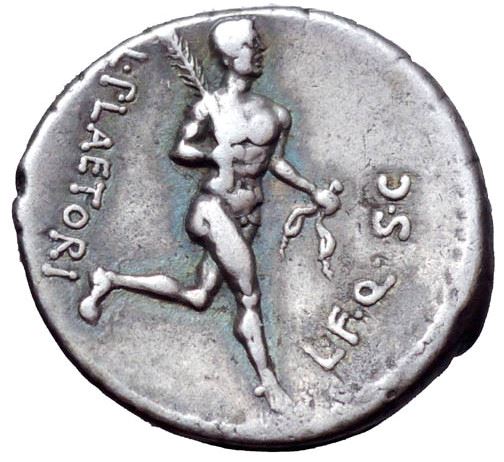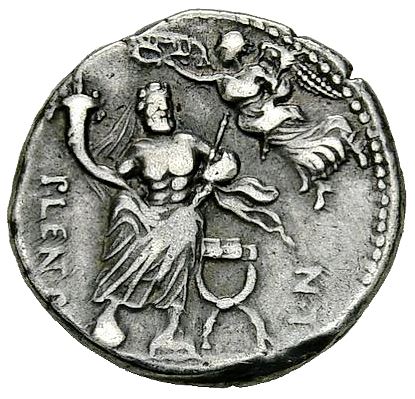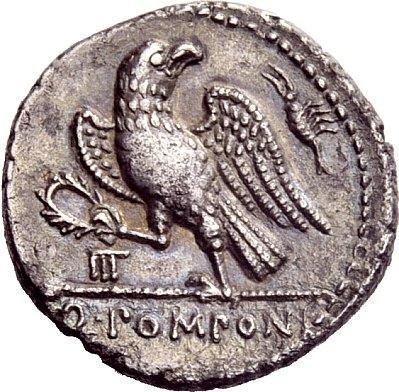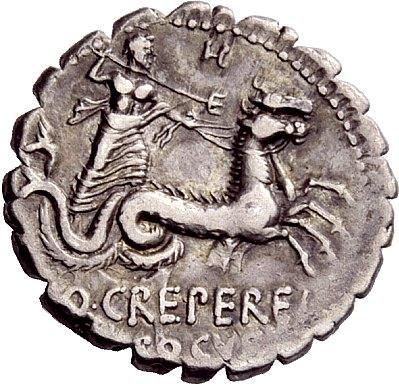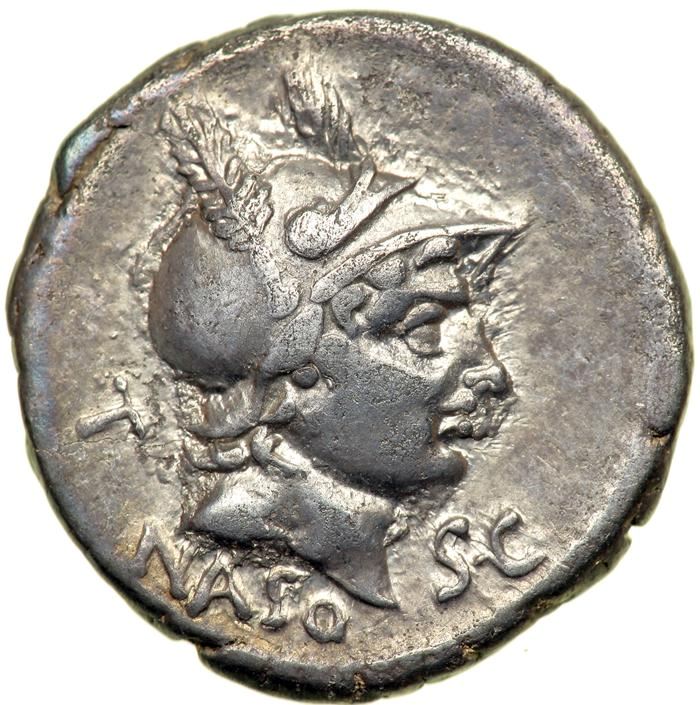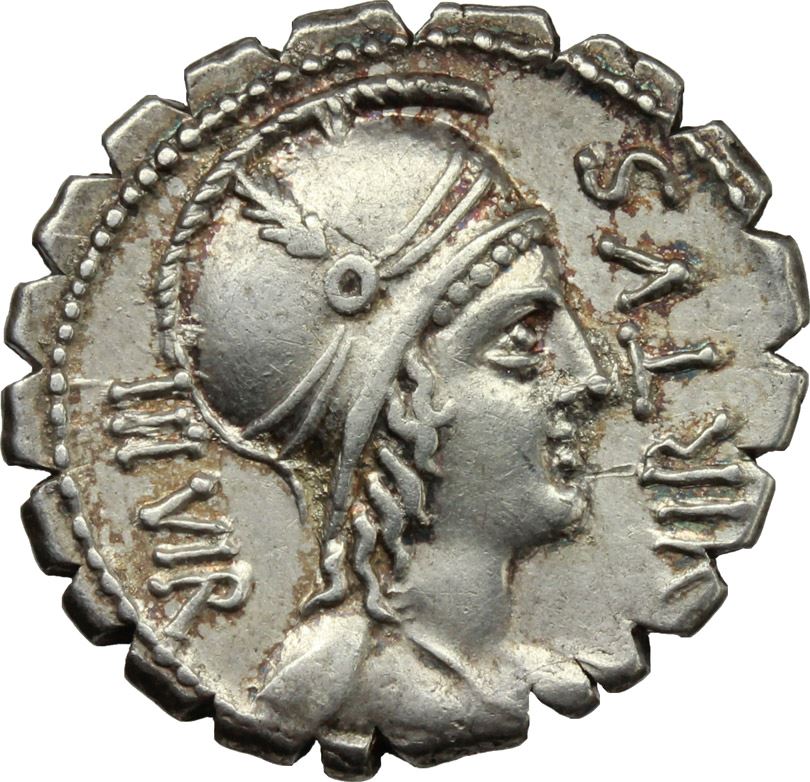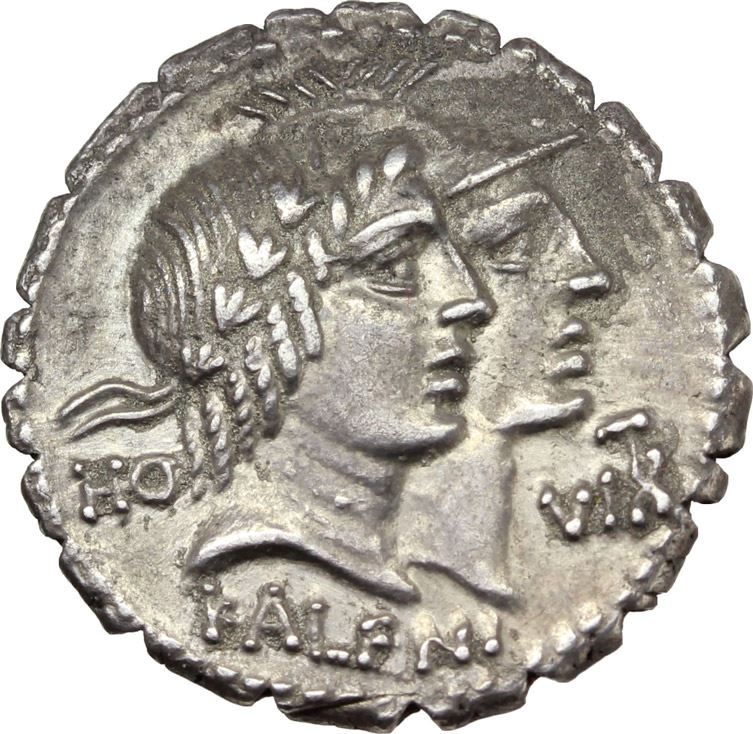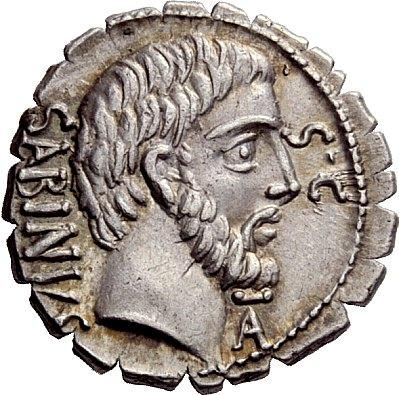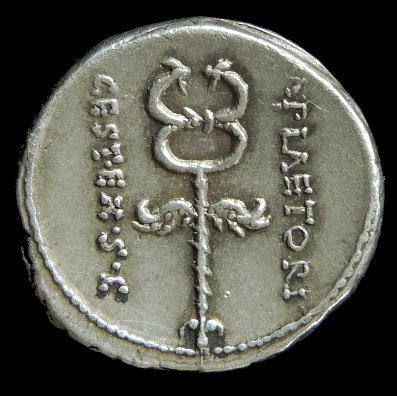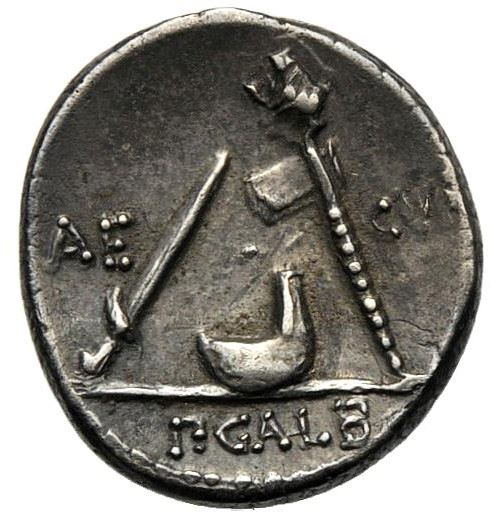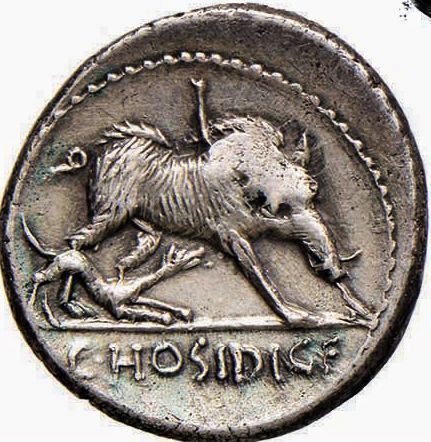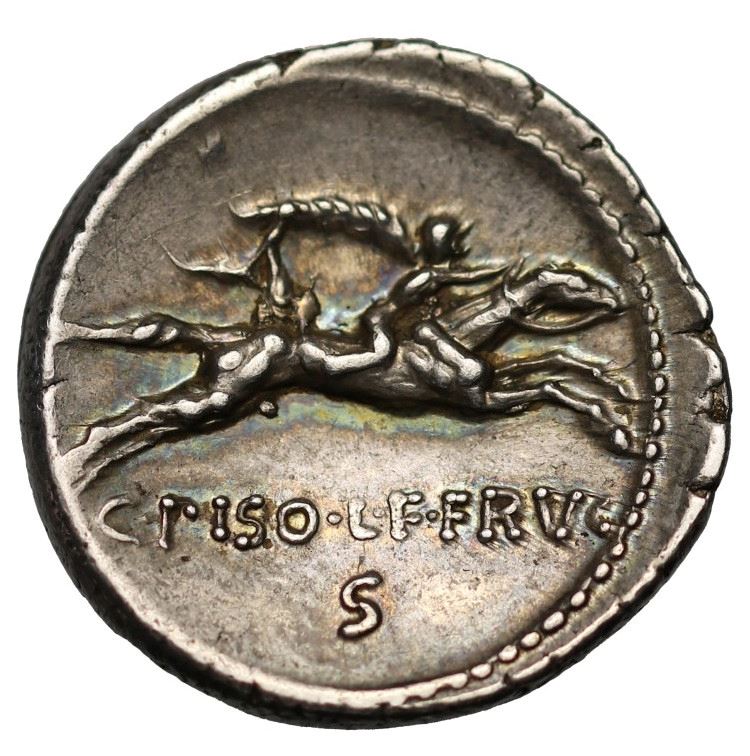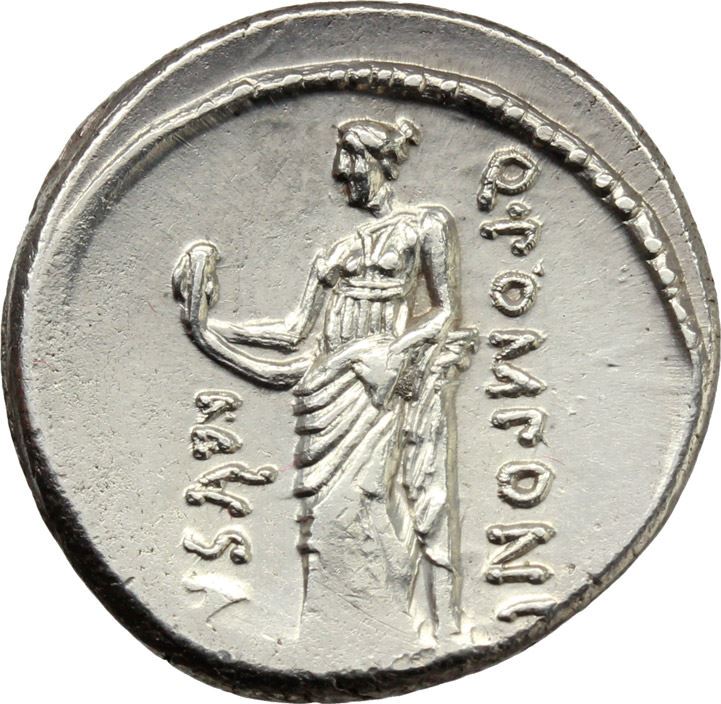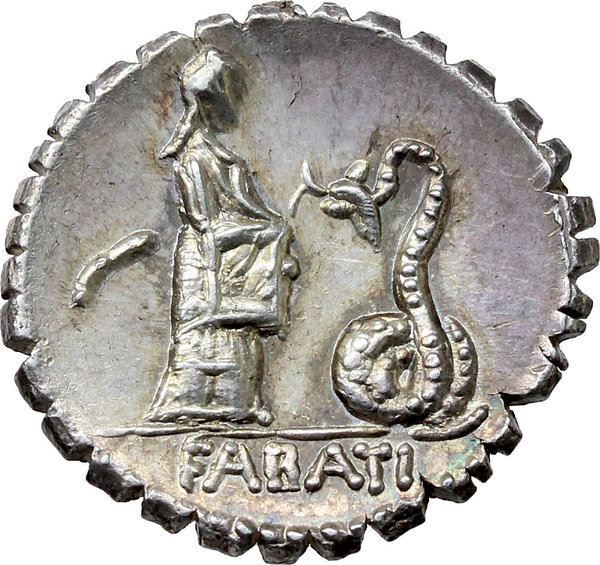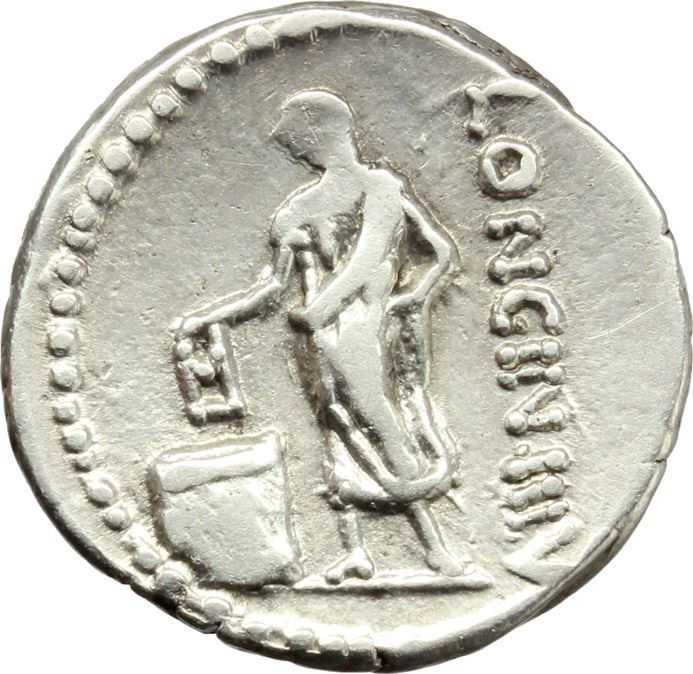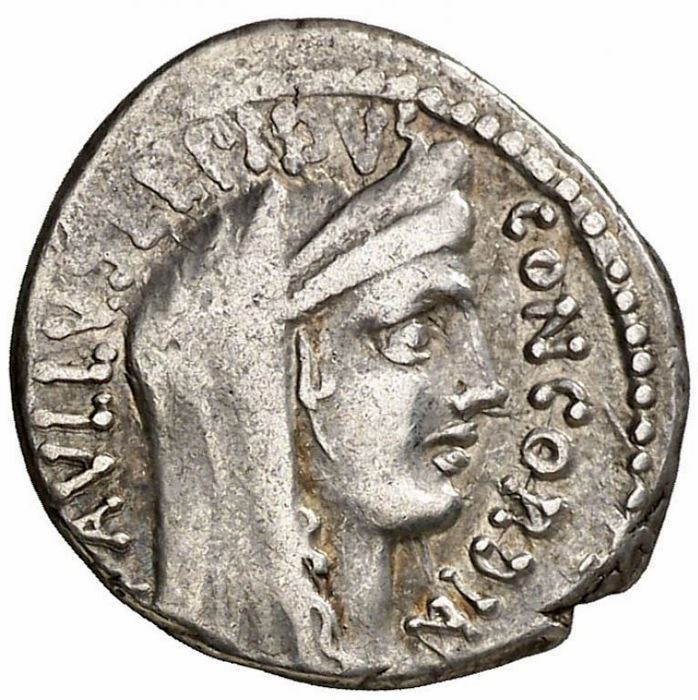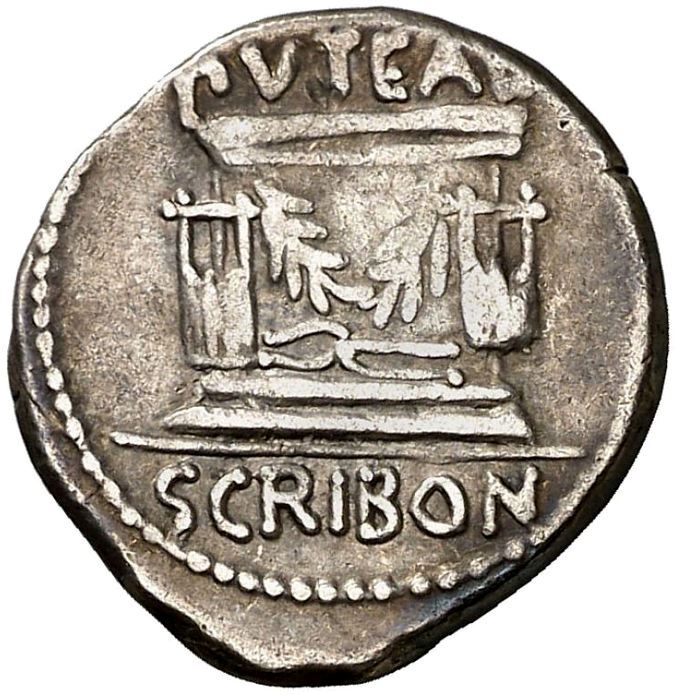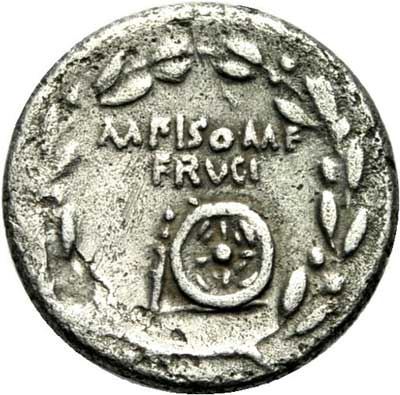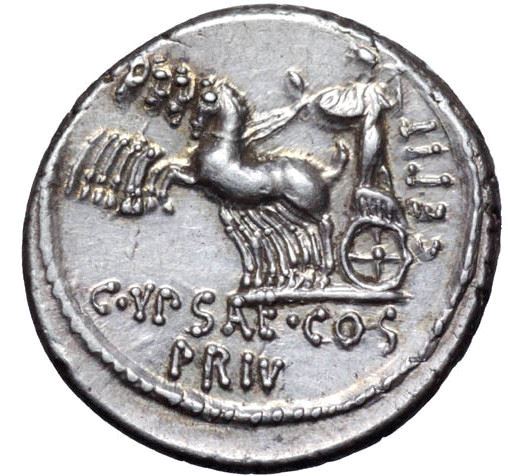After the death of Sulla, there were several attempts by populists to dismantle his constitution, first by the Consul Marcus Aemilius Lepidus, and later (successfully) by Pompeius Magnus and Crassus.
In 66 BC, the populist senator Catiline conspired to violently overthrow the government and enact populist reforms, but Cicero discovered the conspiracy and a bloody aftermath followed. The populares were discredited
As a result, Pompeius, Crassus and Julius Caesar created a private alliance known now as the First Triumvirate. With their backing, Julius Caesar was elected to the consulship in 59 BC.
In 66 BC, the populist senator Catiline conspired to violently overthrow the government and enact populist reforms, but Cicero discovered the conspiracy and a bloody aftermath followed. The populares were discredited
As a result, Pompeius, Crassus and Julius Caesar created a private alliance known now as the First Triumvirate. With their backing, Julius Caesar was elected to the consulship in 59 BC.
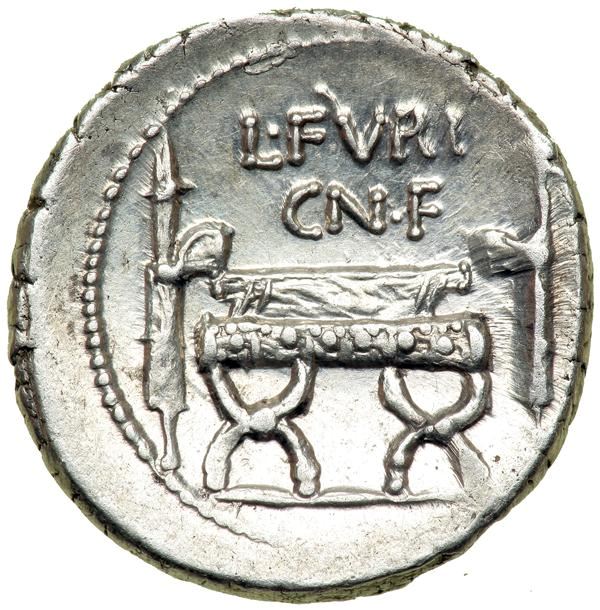
M. Volteius M.f. was one of the moneyers for he year 78 BC. He is not otherwise known.
Gens Volteia is known primarily from coins - the sole exception being an L. Volteius described by Cicero as propraetor in Siclily.
The coins of M. Volteius are always interesting - great designs, beautifully struck, and in a fine style.
Gens Volteia is known primarily from coins - the sole exception being an L. Volteius described by Cicero as propraetor in Siclily.
The coins of M. Volteius are always interesting - great designs, beautifully struck, and in a fine style.
L. Cassius Q.f. Longinus was one of the moneyers for the year 78 BC. He is presumably identical to the Consul for 66 BC:
Gens Cassia was a Roman family of great antiquity. The gens was originally patrician, but all of the members who appear in later times were plebeians. The first of the Cassii to obtain the consulship was Spurius Cassius Viscellinus, in 502 BC. He was the proposer of t...
Gens Cassia was a Roman family of great antiquity. The gens was originally patrician, but all of the members who appear in later times were plebeians. The first of the Cassii to obtain the consulship was Spurius Cassius Viscellinus, in 502 BC. He was the proposer of t...
L. Rutilius Flaccus was one of the moneyers for the year 77 BC. He was a senator in 72 BC.
Gens Rutilia was a plebeian family who began to appear regularly in sources in the 2nd century BC. The first consul from the gens was Publius Rutilius Rufus, who was great uncle to Gaius Julius Caesar and an ally of Gaius Marius's during his term (105 BC).
The cognomen Flaccus has been ...
Gens Rutilia was a plebeian family who began to appear regularly in sources in the 2nd century BC. The first consul from the gens was Publius Rutilius Rufus, who was great uncle to Gaius Julius Caesar and an ally of Gaius Marius's during his term (105 BC).
The cognomen Flaccus has been ...
Publius Satrienus was one of the moneyers for the year 77 BC. He is not otherwise known, and his gens is equally obscure.
L. Rustius was one of the moneyers for the year 76 BC. He is not otherwise known, but is presumed to hail from Antium.
Gens Rustia is virtually unknown, save for two moneyers; L. Rustius in 77 BC and Q. Rustius in the time of the empire.
Gens Rustia is virtually unknown, save for two moneyers; L. Rustius in 77 BC and Q. Rustius in the time of the empire.
Lucius Lucretius Trio was one of the moneyers for the year 76 BC. He is not otherwise known.
One of his coins shows the laureate head of Neptune with a dolphin reverse, the other a radiate Sol and a crescent moon and seven stars on reverse. The stars are the Septem Triones (Ursa major), a pun of the moneyer cognomen.
The Lucretii were one of the most ancient gentes, and the w...
One of his coins shows the laureate head of Neptune with a dolphin reverse, the other a radiate Sol and a crescent moon and seven stars on reverse. The stars are the Septem Triones (Ursa major), a pun of the moneyer cognomen.
The Lucretii were one of the most ancient gentes, and the w...
C. Egnatius Maximus was one of the moneyers for the year 75 BC. He is possibly the younger brother of the Cn. Egnatius mentioned by Cicero.
Gens Egnatia was a plebeian family of equestrian rank at Rome. Only a few of the Egnatii held any magistracies, of whom the most important may have been Gnaeus Egnatius, who held the praetorship during the second century BC, and served as governor o...
Gens Egnatia was a plebeian family of equestrian rank at Rome. Only a few of the Egnatii held any magistracies, of whom the most important may have been Gnaeus Egnatius, who held the praetorship during the second century BC, and served as governor o...
Lucius Farsuleius Mensor was one of the moneyers for the year 75 BC. He is not othwewise known.
Gens Farsuleia was an obscure Roman family, known chiefly from coins and inscriptions. None of its members is known to have held any magistracies. A coin of this gens depicts what appears to be the head of Libertas on the obverse, and on the reverse a man being helped into a chariot by a Roma...
Gens Farsuleia was an obscure Roman family, known chiefly from coins and inscriptions. None of its members is known to have held any magistracies. A coin of this gens depicts what appears to be the head of Libertas on the obverse, and on the reverse a man being helped into a chariot by a Roma...
Gnaeus Cornelius Lentulus Marcellinus was a Roman statesman and consul of 56 BC. He was moneyer 76-75 BC.
He was married at least twice - his first wife is unknown but his second wife was probably Scribonia, at least twenty years his junior, who later became the second wife of Augustus.
Marcellinus died before 47 BC. Scribonia remarried to Publius Cornelius Scipio Salvito, w...
He was married at least twice - his first wife is unknown but his second wife was probably Scribonia, at least twenty years his junior, who later became the second wife of Augustus.
Marcellinus died before 47 BC. Scribonia remarried to Publius Cornelius Scipio Salvito, w...
C. Postumius was one of the moneyers for the year 74 BC. He is not otherwise known.
Postumia was an ancient and noble Patrician family at Rome. Throughout the history of the Republic, the Postumii frequently occupied the chief magistracies of the Roman state, beginning with Publius Postumius Tubertus, consul in 505 BC, the fifth year of the Republic. Although like much of the old Roman ...
Postumia was an ancient and noble Patrician family at Rome. Throughout the history of the Republic, the Postumii frequently occupied the chief magistracies of the Roman state, beginning with Publius Postumius Tubertus, consul in 505 BC, the fifth year of the Republic. Although like much of the old Roman ...
L. Cossutius C.f. Sabula was one of the moneyers for the year 74 BC. He is not otherwise known.
Gens Cossutia was a plebeian family of equestrian rank at Rome. It never attained any importance.
On coins of this gens, we find the cognomens Maridianus and Sabula, but none occur in history.
Gens Cossutia was a plebeian family of equestrian rank at Rome. It never attained any importance.
On coins of this gens, we find the cognomens Maridianus and Sabula, but none occur in history.
L. Plaetorius L.f. Cestianus was one of the quaestors for the year 74 BC, and struck coins in this respect.
Gens Plaetoria was a plebeian family at Rome. A number of Plaetorii appear in history during the first and second centuries BC, but none of this gens ever obtained the consulship. Several Plaetorii issued denarii from the late 70s into the 40s, of which one of the best known allud...
Gens Plaetoria was a plebeian family at Rome. A number of Plaetorii appear in history during the first and second centuries BC, but none of this gens ever obtained the consulship. Several Plaetorii issued denarii from the late 70s into the 40s, of which one of the best known allud...
P. Corn. Lentulus Spinther was one of the queastors for the year 74 BC, and struck coins in this respect. He was Consul in 57 BC.
Publius, nicknamed Spinther because of his likeness to a popular actor of that name, came from an ancient Roman patrician family of the Cornelia gens.
As pro-praetor in Spain, Spinther struck coins which bore his name and nickname - proving the 'Sp...
Publius, nicknamed Spinther because of his likeness to a popular actor of that name, came from an ancient Roman patrician family of the Cornelia gens.
As pro-praetor in Spain, Spinther struck coins which bore his name and nickname - proving the 'Sp...
Q. Pomponius Rufus was moneyer for the year 73 BC. He is not otherwise known, but is perhaps the son of Cn. Pomponius, who was tribunis plebis in 90 BC.
Gens Pomponia was a plebeian family at Rome. Its members appear throughout the history of the Roman Republic, and into imperial times. The first of the gens to achieve prominence was Marcus Pomponius, tribune of the plebs in 449 BC; th...
Gens Pomponia was a plebeian family at Rome. Its members appear throughout the history of the Roman Republic, and into imperial times. The first of the gens to achieve prominence was Marcus Pomponius, tribune of the plebs in 449 BC; th...
Q. Crepereius Rocus was moneyer for the year 72 BC. He is not otherwise known, but struck several coins bearing representations of Venus and Neptune, the gods of Corinth, from which it may be inferred that he had some connection with that city, perhaps after its restoration by Caesar.
Crepereia was a plebeian family of equestrian rank at Rome. The family appears in history from the fir...
Crepereia was a plebeian family of equestrian rank at Rome. The family appears in history from the fir...
L. Axsius L.f. Naso was moneyer for the year 71 BC. He is not otherwise known.
Gens Axia, also spelled Axsia, was a plebeian family at Rome during the final century of the Republic. The gens does not appear to have been particularly large or important, although at least some of the family were reasonably wealthy.
None of the Axii mentioned by ancient writers bear any cognome...
Gens Axia, also spelled Axsia, was a plebeian family at Rome during the final century of the Republic. The gens does not appear to have been particularly large or important, although at least some of the family were reasonably wealthy.
None of the Axii mentioned by ancient writers bear any cognome...
Mn. Aquillius Mn.f. Mn.n was one of the moneyers for the year 71 BC. He was made a senator in 74 BC.
Gens Aquillia or Aquilia was a family at Rome with both patrician and plebeian branches. This gens was of great antiquity. Two of the Aquillii are mentioned among the Roman nobles who conspired to bring back the Tarquins, and a member of the house, Gaius Aquillius Tuscus, was consul in 4...
Gens Aquillia or Aquilia was a family at Rome with both patrician and plebeian branches. This gens was of great antiquity. Two of the Aquillii are mentioned among the Roman nobles who conspired to bring back the Tarquins, and a member of the house, Gaius Aquillius Tuscus, was consul in 4...
Quintus Fufius Calenus was one of the moneyers for the year 70 BC, who struck coins jointly with his colleage P. Mucius Scaevola Cordus. He later served as a general and as Consul in 47 BC.
Gens Fufia was a plebeian family at Rome. The gens does not appear to have been of great antiquity, and only appears in history toward the beginning of the first century BC. The Fufii do not occur i...
Gens Fufia was a plebeian family at Rome. The gens does not appear to have been of great antiquity, and only appears in history toward the beginning of the first century BC. The Fufii do not occur i...
P. Mucius Scaevola Cordus was one of the moneyers for the year 70 BC. He struck coins jointly with his colleague, Q. Fufius Calenus.
Gens Mucia was an ancient and noble patrician house at Rome. The gens is first mentioned at the earliest period of the Republic, but in later times the family was known primarily by its plebeian branches.
The only major family of the Mucii bore ...
Gens Mucia was an ancient and noble patrician house at Rome. The gens is first mentioned at the earliest period of the Republic, but in later times the family was known primarily by its plebeian branches.
The only major family of the Mucii bore ...
T. Vettius Sabinus was one of the moneyers for the year 70 BC. He later served as Praetor in 59 BC.
Gens Vettia was a plebeian family of Rome built at the end of the Republic . The Vettii then grew in importance during the Empire , when their name often appeared in the Fasti . A branch of the Vettii lived in the village of Vezza d'Alba , which in fact took its name. Also in Pompeii ther...
Gens Vettia was a plebeian family of Rome built at the end of the Republic . The Vettii then grew in importance during the Empire , when their name often appeared in the Fasti . A branch of the Vettii lived in the village of Vezza d'Alba , which in fact took its name. Also in Pompeii ther...
M. Plaetorius M.f. Cestianus was one of the moneyers for the year 69 BC. He is not otherwise known.
Gens Plaetoria was a plebeian family at Rome. A number of Plaetorii appear in history during the first and second centuries BC, but none of this gens ever obtained the consulship. Several Plaetorii issued denarii from the late 70s into the 40s, of which one of the best known alludes to th...
Gens Plaetoria was a plebeian family at Rome. A number of Plaetorii appear in history during the first and second centuries BC, but none of this gens ever obtained the consulship. Several Plaetorii issued denarii from the late 70s into the 40s, of which one of the best known alludes to th...
P. Sulpicius Galba was one of the moneyers for the year 69 BC. He was appointed one of the judges in the case of Verres, in 70 BC, afterwards a pontifex and augur. He had been praetor, but the year is uncertain; perhaps 66.
The gens Sulpicia was one of the most ancient patrician families at Rome, and produced a succession of distinguished men, from the foundation of the Republic to the ...
The gens Sulpicia was one of the most ancient patrician families at Rome, and produced a succession of distinguished men, from the foundation of the Republic to the ...
C. Hosidius C.f. Geta was one of the moneyers for the year 68 BC. He is likely identical to the Hosidius Geta who was proscibed in 43 BC, as a part of the backlash for the murder of Julius Caesar.
He was rescued by his son who pretended that the elder Geta had taken his own life, and performed the funeral rites while concealing his father on one of his farms.
The father disg...
He was rescued by his son who pretended that the elder Geta had taken his own life, and performed the funeral rites while concealing his father on one of his farms.
The father disg...
C. Calpurnius Piso L.f. L.n. Frugi was a moneyer during the Republic.
He was married to Cicero's daughter, Tullia, in 63 B.C. and he was quaestor in 58 B.C. This type copies an issue of his father, Lucius Piso Frugi, c. 90 B.C. Crawford dates this type to 67 B.C. Sydenham and Grueber date it 64 B.C. Sear notes that hoard evidence indicates a date closer to 60 B.C.
He was married to Cicero's daughter, Tullia, in 63 B.C. and he was quaestor in 58 B.C. This type copies an issue of his father, Lucius Piso Frugi, c. 90 B.C. Crawford dates this type to 67 B.C. Sydenham and Grueber date it 64 B.C. Sear notes that hoard evidence indicates a date closer to 60 B.C.
Quintus Pomponius Musa was a magistrate, moneyer and banker during the Republican Period in Rome, around 66 BC.
Musa created ten coin designs: one design for each of the nine Muses, a play on Musa's name; and one coin featuring the image of Hercules with the inscription HERCULES MUSARUM (Hercules of the Muses). All ten designs depict the specific muse on the reverse, while featuring the...
Musa created ten coin designs: one design for each of the nine Muses, a play on Musa's name; and one coin featuring the image of Hercules with the inscription HERCULES MUSARUM (Hercules of the Muses). All ten designs depict the specific muse on the reverse, while featuring the...
Lucius Roscius Fabatus was a military officer and politician of the late Roman Republic.
He began his political career (cursus honorum) as a moneyer in 64 BC.[2] In 55 BC he was elected tribune of the plebs and co-sponsored at least one law, the lex Mamilia Roscia Alliena Peducaea Fabia. Associated with the faction of the populares, he supported Julius Caesar.
He was a membe...
He began his political career (cursus honorum) as a moneyer in 64 BC.[2] In 55 BC he was elected tribune of the plebs and co-sponsored at least one law, the lex Mamilia Roscia Alliena Peducaea Fabia. Associated with the faction of the populares, he supported Julius Caesar.
He was a membe...
Lucius Cassius Longinus was the brother of the Gaius Cassius Longinus, a leading instigator in the assassination of Julius Caesar. He was one of the moneyers for the year 63 BC.
He was a proconsul by Caesar's appointment in 48 BC, during the civil war. He occupied Thessaly, but was forced by Metellus Scipio to retreat, after which he joined Calvisius Sabinus in Aetolia. He was a tribune...
He was a proconsul by Caesar's appointment in 48 BC, during the civil war. He occupied Thessaly, but was forced by Metellus Scipio to retreat, after which he joined Calvisius Sabinus in Aetolia. He was a tribune...
L. Furius Brocchus was one of the moneyers for the year 63 BC.
He is not otherwise known. Babelon has suggested that the head of Ceres refers to the grain distributions conducted by the plebeian aediles.
The curule chair and fasces, however, indicate the curule, not the plebeian, aedileship. The head of Ceres and the grain symbols may refer to the largess that Brocchus would...
He is not otherwise known. Babelon has suggested that the head of Ceres refers to the grain distributions conducted by the plebeian aediles.
The curule chair and fasces, however, indicate the curule, not the plebeian, aedileship. The head of Ceres and the grain symbols may refer to the largess that Brocchus would...
Lucius Aemilius Lepidus Paullus was the brother of triumvir Marcus Aemilius Lepidus and son to an elder Marcus Aemilius Lepidus.
He supported Cicero during the Catiline Conspiracy and never supported Pompey. Paullus was quaestor in 59 BC, aedile in 55 BC, praetor in 53 BC and consul in 50 BC.
During his consulship, Julius Caesar bribed him for his support. He reconstructed th...
He supported Cicero during the Catiline Conspiracy and never supported Pompey. Paullus was quaestor in 59 BC, aedile in 55 BC, praetor in 53 BC and consul in 50 BC.
During his consulship, Julius Caesar bribed him for his support. He reconstructed th...
An L. Scribonius Libo was moneyer in 62 BC - perhaps the consul for the year 34 BC, or more likely his father (according to Crawford).
The elder Scribonius Libo held the office of praetor urbanus in 80 BC. He married Cornelia Sulla, the daughter of Pompeia Magna (daughter of triumvir Pompey) and senator Faustus Cornelius Sulla (the son of Sulla).
Cornelia bore Lucius two chi...
The elder Scribonius Libo held the office of praetor urbanus in 80 BC. He married Cornelia Sulla, the daughter of Pompeia Magna (daughter of triumvir Pompey) and senator Faustus Cornelius Sulla (the son of Sulla).
Cornelia bore Lucius two chi...
M. Pupius M.f. Piso Frugi was one of the moneyers for the year 61 BC. He is not otherwise known.
Gens Pupia was a plebeian family at ancient Rome. Members of this gens are mentioned as early as 409 BC, when Publius Pupius was one of the first plebeian quaestors, but over the course of centuries they achieved little of significance, and rarely held any of the higher offices of the Roman ...
Gens Pupia was a plebeian family at ancient Rome. Members of this gens are mentioned as early as 409 BC, when Publius Pupius was one of the first plebeian quaestors, but over the course of centuries they achieved little of significance, and rarely held any of the higher offices of the Roman ...
Publius Plautius Hypsaeus was one of the moneyers for the year 60 BC.
As Praetor and an ally of Pompey, Hypsaeus was later tried under Pompey's retroactive laws on violence and corruption (52 BC) for bribery. In 53 BC he was a candidate for the consular position, against Milo. Hypsaeus' gangs were reinforced by Clodius and fights broke out between the competing parties.
Gens Plautia, s...
Gens Plautia, s...

